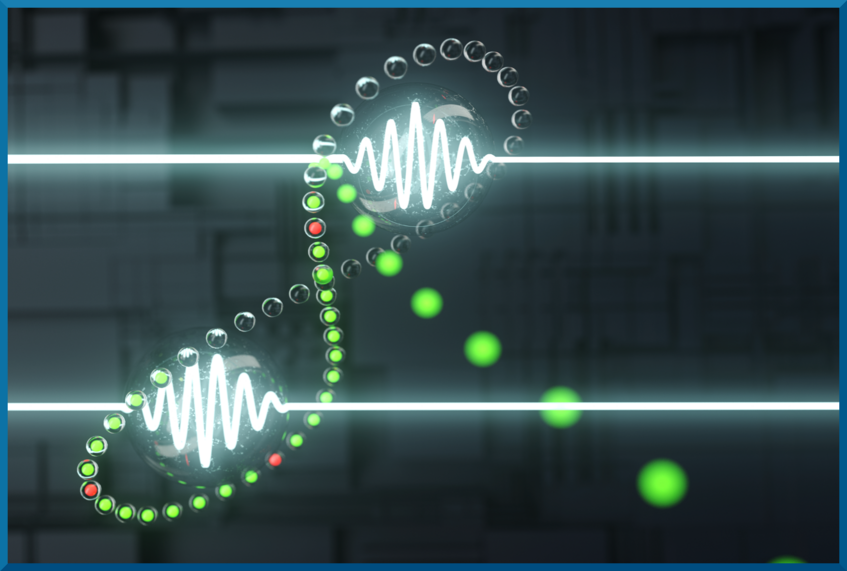Applied Quantum Information
From Theory to Experiment: Collaborative Advances and Applications in Realistic Platforms

Our group maintains a strong tradition of close collaboration with experimental teams to test, refine, and apply theoretical advances in real-world quantum platforms. These partnerships enable us to bridge the gap between foundational research and practical implementation.
Current Collaborations and Research Directions
- Quantum Optics and Quantum Machine Learning
In collaboration with Philip Walther’s group (University of Vienna) and as part of the BeyondC consortium, we are developing and analyzing novel computational models based on quantum linear optics, as well as exploring applications of quantum machine learning in quantum photonic systems. - Verification and Validation on Emerging Platforms
Our resource-efficient methods for quantum state verification and certification are being prepared for testing on both photonic and trapped-ion platforms in collaboration with experimental groups within the BeyondC network. - Quantum Optomechanics
Together with Markus Aspelmeyer's group (University of Vienna), we are exploring new effets in optomechanical systems and their potential for quantum information processing. We have developed a comprehensive theoretical framework for the classification of dissipative phase transitions in these systems, with promising implications for control and robustness in quantum devices.
References
[AQ1] Experimental Boson Sampling, M. Tillmann, B. Dakić, R. Heilmann, S. Nolte, A. Szameit, and P. Walther, Nature Photonics 7, 540-544 (2013), https://doi.org/10.1038/nphoton.2013.102.
[AQ2] Quantum simulation of the wavefunction to probe frustrated Heisenberg spin systems, X. Ma, B. Dakić, W. Naylor, A. Zeilinger, and P. Walther, Nature Physics 7, 399-405 (2011),https://doi.org/10.1038/nphys1919.
[AQ3] Single-photon test of hyper-complex quantum theories using a metamaterial, L. M. Procopio, L. A. Rozema, Z. J. Wong, D. R. Hamel, K. O'Brien, X. Zhang, B.Dakić, and Philip Walther, Nature Communications 8, 15044 (2017),https://doi.org/10.1038/ncomms15044.
[AQ4] Dissipative phase transitions in optomechanical systems, F. Bibak, U. Delić, M. Aspelmeyer, B. Dakić, Physical Review A 107, 053505, 2023,https://doi.org/10.1103/PhysRevA.107.053505.
[AQ5] Experimental few-copy multi-particle entanglement detection, V. Saggio, A. Dimić, C. Greganti, P. Walther, B. Dakić, Nature Physics 15, 935 (2019),https://doi.org/10.1038/s41567-019-0550-4.
